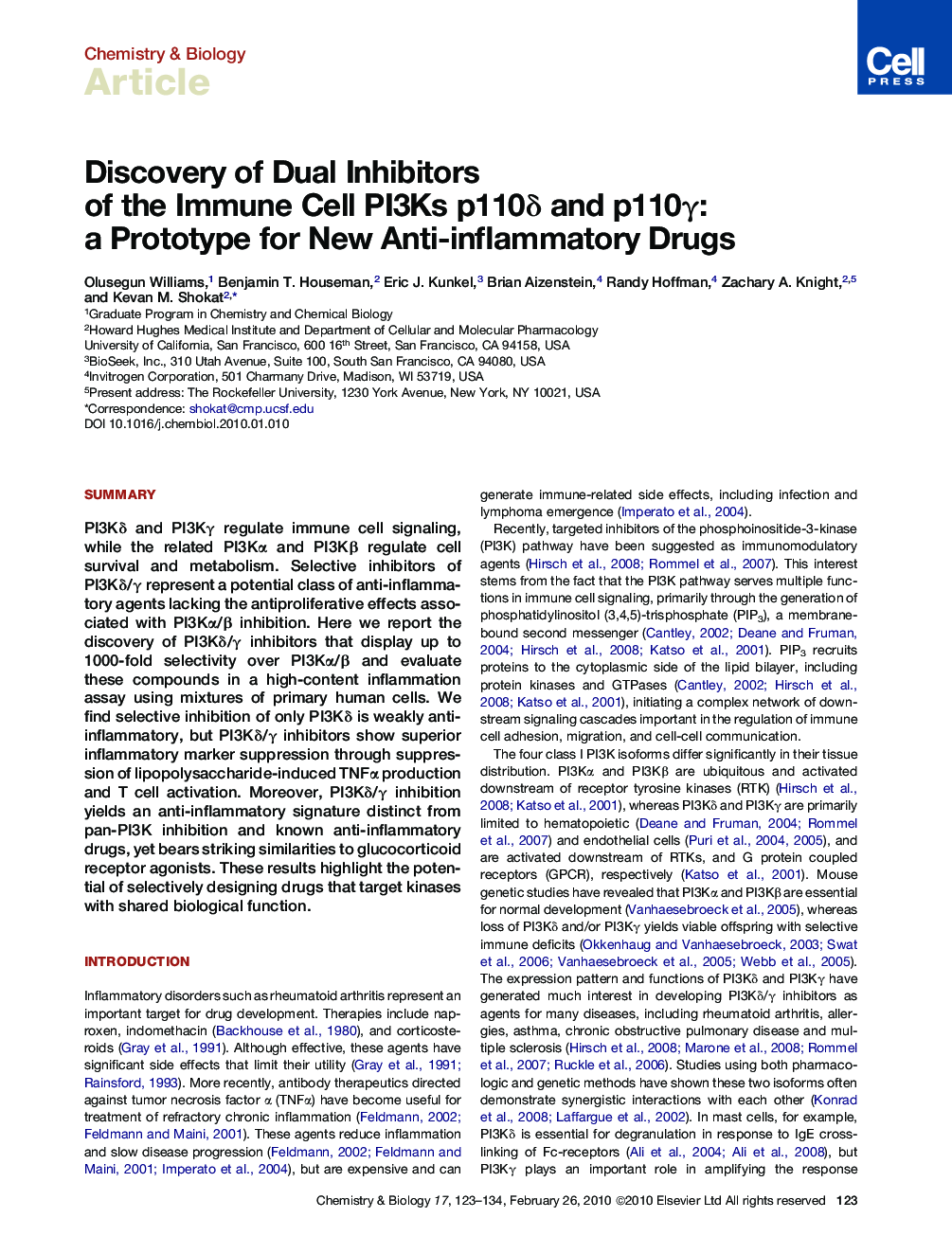| Article ID | Journal | Published Year | Pages | File Type |
|---|---|---|---|---|
| 1392566 | Chemistry & Biology | 2010 | 12 Pages |
SummaryPI3Kδ and PI3Kγ regulate immune cell signaling, while the related PI3Kα and PI3Kβ regulate cell survival and metabolism. Selective inhibitors of PI3Kδ/γ represent a potential class of anti-inflammatory agents lacking the antiproliferative effects associated with PI3Kα/β inhibition. Here we report the discovery of PI3Kδ/γ inhibitors that display up to 1000-fold selectivity over PI3Kα/β and evaluate these compounds in a high-content inflammation assay using mixtures of primary human cells. We find selective inhibition of only PI3Kδ is weakly anti-inflammatory, but PI3Kδ/γ inhibitors show superior inflammatory marker suppression through suppression of lipopolysaccharide-induced TNFα production and T cell activation. Moreover, PI3Kδ/γ inhibition yields an anti-inflammatory signature distinct from pan-PI3K inhibition and known anti-inflammatory drugs, yet bears striking similarities to glucocorticoid receptor agonists. These results highlight the potential of selectively designing drugs that target kinases with shared biological function.
Graphical SummaryFigure optionsDownload full-size imageDownload high-quality image (310 K)Download as PowerPoint slideHighlights► Conformationally specific PI3Kδ/γ inhibitors do not inhibit PI3Kα/β ► Specific PI3Kδ/γ inhibitors are active and potent in cells ► Selective PI3Kδ/γ inhibition lowers TNFα secretion and E-selectin expression ► Selective PI3Kδ/γ inhibition functionally resembles GR agonist prednisolone
